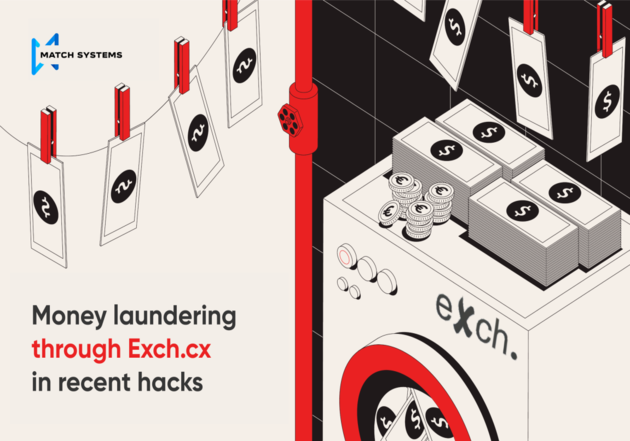The cryptocurrency industry has faced its fair share of controversies, but the recent shutdown of eXch , a relatively new exchange platform, has sent shockwaves through the community. The abrupt closure follows allegations linking eXch to the infamous Lazarus Group , a state-sponsored cybercrime syndicate tied to North Korea. This development raises critical questions about trust, security, and accountability within the crypto ecosystem. In this article, we’ll explore why eXch shuts down , the fallout for users, broader implications for the industry, and key lessons learned.
What Happened to EXCH?
On April 17, eXch announced its immediate shutdown via an official statement on its website. The vague explanation cited “unforeseen circumstances” as the reason for halting operations, leaving users in the dark about the specifics. Shortly after, reports emerged alleging that eXch was under investigation for potential ties to the Lazarus Group , a hacking collective notorious for orchestrating high-profile cyberattacks.

The Lazarus Group, believed to be backed by the North Korean government, has been implicated in some of the most damaging hacks in history. These include the $620 million Ronin Bridge heist in 2022 and the WannaCry ransomware attack in 2017. Law enforcement agencies reportedly flagged suspicious transaction patterns on eXch that mirrored those commonly associated with Lazarus Group activities, such as money laundering and obfuscation techniques.
While eXch has not officially confirmed these allegations, the mounting evidence suggests that regulatory pressure and scrutiny played a significant role in the decision to shut down. Unfortunately, the lack of transparency has left users scrambling for answers—and their funds. When eXch shuts down , it leaves behind a trail of unanswered questions and financial losses.
The Fallout for eXch Users
For users of eXch, the sudden shutdown has been devastating. Many investors were blindsided, unable to withdraw their funds before the platform went offline. Estimates suggest that millions of dollars’ worth of cryptocurrencies may now be inaccessible, locked in limbo indefinitely.
Social media platforms like Twitter and Reddit have been flooded with complaints from disgruntled customers who claim they had no prior warning about the impending closure. Some users reported attempting to access their accounts only to find them either frozen or emptied entirely. While it remains unclear whether all missing funds are directly linked to malicious activity by Lazarus, the lack of communication from eXch has exacerbated frustration and distrust.
This incident highlights one of the biggest risks of using centralized exchanges: the absence of control over your private keys. When you store assets on an exchange like eXch , you effectively hand over custody to a third party—a gamble that can lead to catastrophic losses when eXch shuts down unexpectedly.
Broader Implications for the Crypto Industry

The alleged involvement of eXch with the Lazarus Group underscores several pressing challenges facing the cryptocurrency industry:
- Regulatory Scrutiny :
Incidents like this reinforce calls for stricter regulations governing crypto exchanges. Regulators warn that without oversight, bad actors exploit systems for illegal activities. Governments are enforcing KYC and AML measures to combat money laundering, terrorist financing, and cybercrime. However, inconsistent enforcement across jurisdictions creates loopholes that criminals can exploit. The abrupt way eXch shuts down serves as a stark reminder of the need for better regulatory frameworks. - Reputation Damage :
For an industry striving to gain mainstream acceptance, scandals involving criminal organizations deal a significant blow to credibility. Each high-profile breach undermines trust in digital currencies, hindering legitimate projects from attracting users and investors. The eXch saga highlights the need for due diligence when selecting trusted platforms. - Security Challenges :
Despite advancements in blockchain technology, centralized exchanges remain vulnerable to attacks. Whether through insider threats, phishing schemes, or sophisticated hacking attempts, these platforms are prime targets for cybercriminals. The alleged Lazarus connection demonstrates how even seemingly legitimate businesses can become unwitting accomplices in global crime networks. - Decentralization Advocacy :
Events like the eXch shutdown often reignite debates around decentralization versus centralization. Proponents of decentralized finance (DeFi) argue that self-custodial wallets and peer-to-peer trading offer greater security and autonomy compared to traditional exchanges. By eliminating intermediaries, DeFi aims to reduce reliance on potentially corruptible third parties. However, challenges such as scalability, usability, and regulatory hurdles continue to hinder widespread adoption. When eXch shuts down , it highlights the risks of trusting centralized entities.
Lessons Learned and Moving Forward
The collapse of EXCH offers several critical takeaways for both users and industry stakeholders:
- Conduct Thorough Research : Before depositing funds into any exchange, verify its legitimacy by checking reviews, auditing reports, and regulatory status. Platforms with opaque ownership structures or questionable practices should raise red flags.
- Self-Custody Whenever Possible : Holding your crypto in non-custodial wallets gives you full control over your assets, reducing exposure to risks posed by centralized intermediaries. Hardware wallets, in particular, provide an added layer of protection against unauthorized access.
- Advocate for Transparency : Pressure must be placed on exchanges to adopt transparent policies regarding fund management, security protocols, and operational procedures. Regular audits conducted by independent firms can help build trust among users.
- Support Regulatory Reforms : While excessive regulation could stifle innovation, reasonable safeguards are necessary to weed out bad actors and protect consumers. Supporting initiatives aimed at enhancing KYC/AML frameworks and combating cybercrime will benefit the entire ecosystem in the long run. The way eXch shuts down underscores the need for balanced regulation.
Conclusion
The shutdown of EXCH amid allegations of ties to the Lazarus Group serves as a sobering reminder of the dangers lurking within the crypto space. It underscores the urgent need for improved security measures, increased transparency, and stronger regulatory oversight. For users, the lesson is clear: exercise caution, prioritize self-custody, and demand accountability from service providers.
As the dust settles, the crypto community must come together to address these systemic issues head-on. Only then can we hope to restore faith in digital currencies and pave the way for a safer, more sustainable future.




